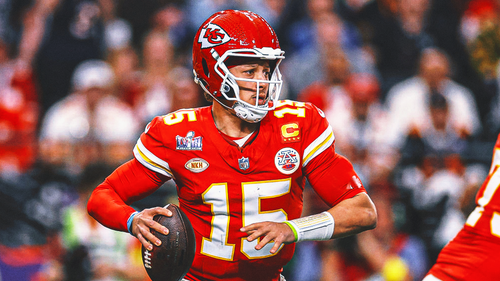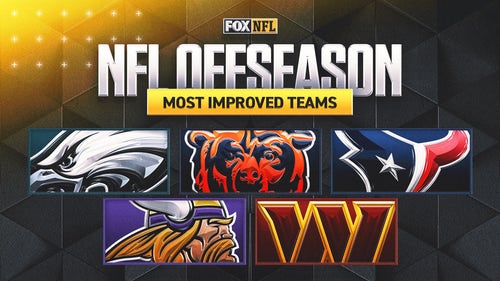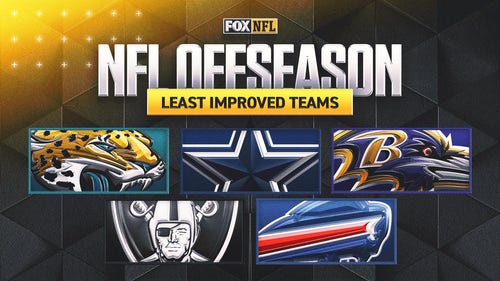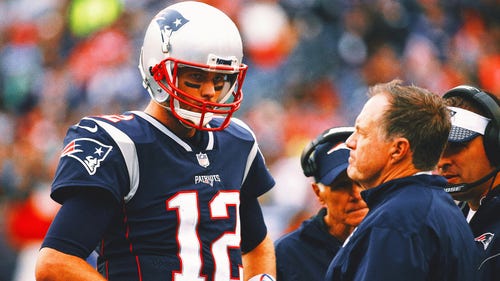
Bounty issue won't go away soon
It is nothing less than amazing for me to see the time, energy and rhetoric that is surrounding the allegations made against the New Orleans Saints with regards to the “bounty” system they employed. Much has and will be said about the severity of these allegations and what the ramifications will be, both with the Saints, Greg Williams and the league as a whole.
Having been a head coach, there are a couple things that jump out at me. First, this is very consistent with the actions of commissioner Roger Goodell. Since taking the job, Goodell has made it abundantly clear that the safety of the players, as he sees it, is going to be the top priority.
Many can debate the tools he has employed to do this. The focus of on-the-field rules with regard to head-to-head hits and hitting “defenseless” players coupled with the changes in practice routine regulations in the latest CBA can be debated as to whether they are good for the game or not. What can’t be debated is the intent of protecting the players in what is, by the very nature of the game, the most violent of all team sports.
Those who are critical must “turn to page two of the story” with regards to the ongoing discussions about concussions and dementia due to the effects of the game. So regardless of how this ends, the consistency of the commissioner’s action must be applauded.
Selfishly, the next question, as a coach, is what does this mean to me. This is where the consequences of the sanctions that are going to be leveled and the actionable steps I as a head coach need to address become much more vague. First, what am I responsible for as a head coach? Whether you like it or not, whether it is reasonable or not, you are responsible, if not culpable, for everything that goes on under your watch.
Clearly, no one in his or her right mind would enable any action that would result in the willful intent to injure another player. Therein lies the problem. What is the intent? The league has long said they do not want to get into the business, particularly on the field, of trying to officiate or legislate intent. Every defensive coordinator in the league on Wednesday morning, when they install the game plan, will say at some point “we need to get after the QB,” or “we have to get as many hits on this guy as we can,” or “we have to take this guy out of the game.” Does this mean we are willfully trying to injure the player or just emphasizing the need to limit his productivity? Most players in their positional meetings will have some form of “bounty” for the first interception, or the number of hits on the QB, or a hit causing a fumble. These are the most rudimentary of goals as a defender.
Coaches will embrace this type of competitive spirit without condoning the intent to harm a player. This is not like in the movie The Longest Yard, where they are poring over X-rays to see where a player may have had a broken bone so you could target that specific area. That only happens in the movies. It is important to have the proper filter in discussing the aggressive rhetoric of the players amongst themselves. Much of the testosterone-driven language in a locker room is just that … talk.
In this case, it is obvious that the league feels it has a much more direct link between what was said and the intent, particularly in that it was fostered and generated by the coaches.
Sean Payton, if he did not know about it, and that is an indictment on its own level, is still responsible for the atmosphere that allowed it to happen. It’s like when Josh McDaniels, having been on Bill Belichick’s staff in New England when “Spygate” hit, then had his own version of it take place in Denver. Maybe he didn’t know about it, but it is incumbent upon the head coach to sit down face-to-face with every member of his organization (players, coaches, medical staff, personnel and support) and ask, “What have I done as the head coach to make you think I would condone such a thing.”
The most egregious offense appears to be that after the Saints were approached about this in 2009 and 2010, and the league did not have enough to pursue the matter, the players and coaches allegedly continued the practice in 2011. That coupled with the apparent lying to the league will always draw the ire of the NFL.
It is my guess that the sanctions will be significant. If Spygate brought about the loss of draft choices and a $500,000 dollar fine to Belichick, I can’t imagine that this is going to be any less. Spygate drew the sanctions from the league because Belichick lied to the league about a competitive disadvantage issue. I can’t imagine that the league would level lesser sanctions about an issue regarding player safety, the commissioner’s top priority!
What will bear watching is what happens going forward. I am sure the commissioner has accomplished what he had set out to do: make it clear in no uncertain terms that this will not be allowed to continue. However, the law of unintended consequence is clearly in play here. We will continue to hear about this through the off-season and will clearly be brought up and scrutinized during the season as well. There is likely to be a witch-hunt on the part of the media to uncover other coaches and teams that conducted the same type of behavior. The question becomes what will the commissioner do then? The sanctions he levels in this issue will be the template for all that is uncovered going forward.















































































































































